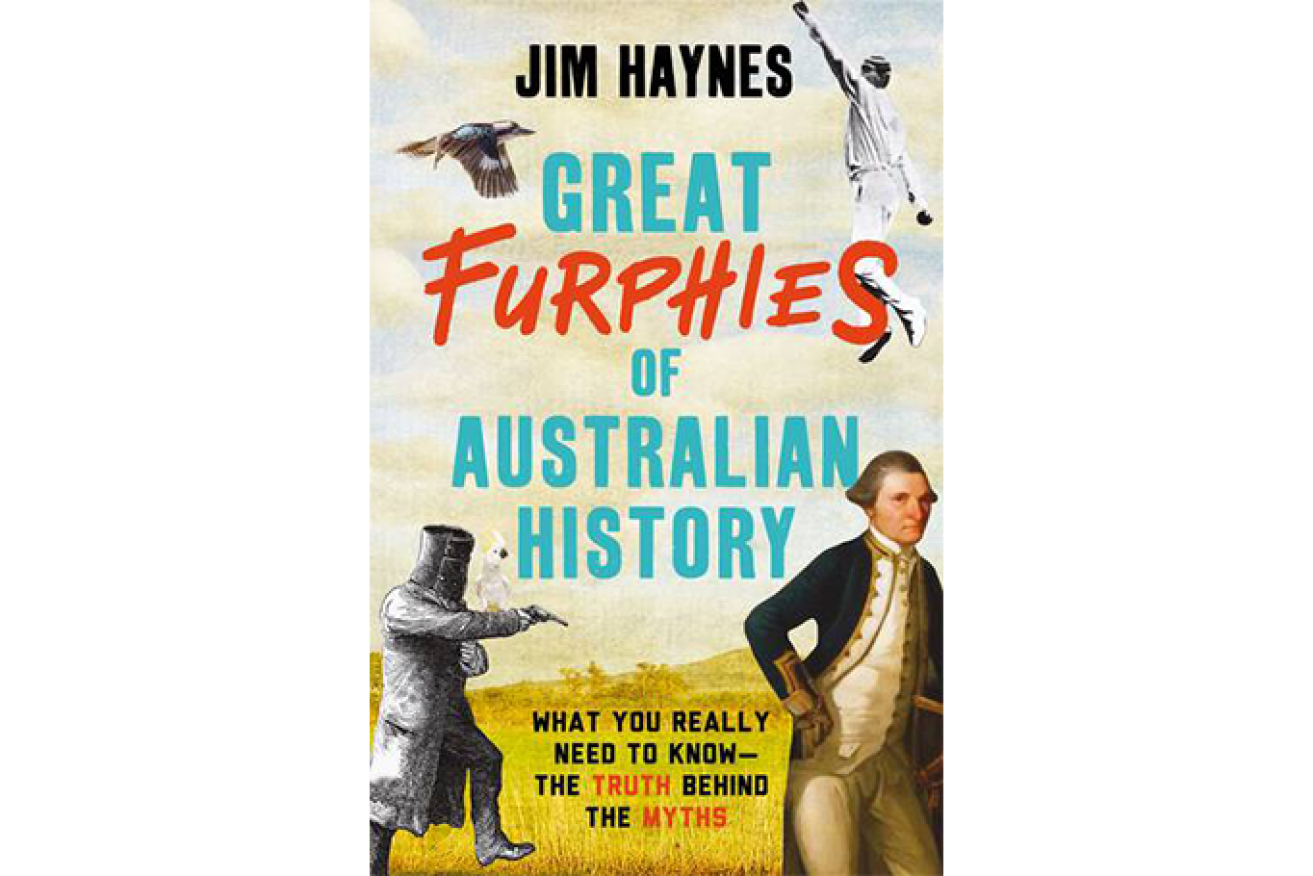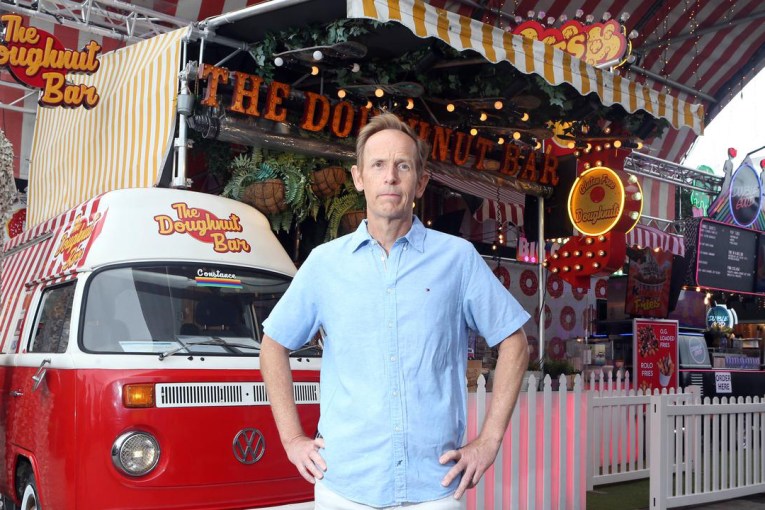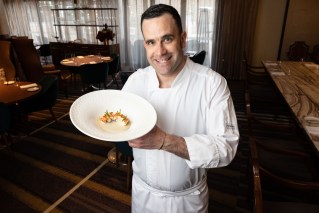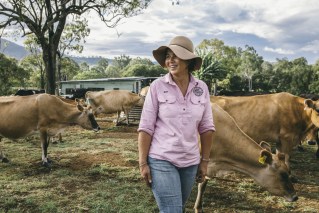An extract from Jim Haynes’ Great Furphies of Australian History
In today’s summer reading extract, Jim Haynes interrogates some of the great myths of Australian history, including our drinking habits.

Great Furphies of Australian History by Jim Haynes is out now, published by Allen & Unwin
Although Australia has a very alcoholic history, many of the things that people believe about our drinking habits are not necessarily true.
It is true that we are probably the only nation in the world who can boast a prime minister (Bob Hawke) who held a record for beer drinking (1.4 litres in eleven seconds), if such a thing is something to boast about.
As far as I know, we are also the only nation in the world to have had alcohol as our official currency although, at that stage of course, we were not a nation; it was merely the colony of New South Wales that used rum as currency.
Perhaps some of us tend to exaggerate the historic influence of alcohol on Australia. After all, the attitude to drinking and the tendency to drink to excess was something we inherited with our British background.
There is no real evidence to suggest that the levels of drinking and results of the evils of alcohol were any different in the British colonies in Australia from what they were in Britain at the time of colonisation.
The only way to reach the colonies in the Antipodes was by sailing ship, and alcohol was part and parcel of both the Royal Navy and the merchant navy.
The German botanist Johann Forster, who replaced Joseph Banks on Cook’s second voyage of discovery, described the crew as ‘solicitous to get very drunk, though they are commonly solicitous about
nothing else’. The acceptance of drunkenness, and the tolerance of overindulgence in alcohol as a lifestyle, was part and parcel of both naval life and working-class life in Britain in the 18th century, and it was transferred to the colonies of Australasia, along with everything else British.
The mutiny by the 99th Regiment in Sydney in 1846 was ostensibly caused by the abolition of the daily grog allowance—on the order of Colonel Despard. It was really a ‘strike’ that lasted approximately four weeks and ended when the ‘rebels’ learned that 400 troops from Hobart were on board the ship Tasmania standing off Sydney Heads.
The mutiny was, in fact, a protest against Despard’s over-officious style of leadership and his attempts to separate the troops from the townspeople. Evidently he was of the opinion that the troops might have to be used against the unruly part-convict population, and he was dead against them being seen to be a part of the general community. He was concerned that the ‘foreign service’ grog ration encouraged the troops to be far too like the people they were there to control.
Despard, who famously led a disastrous campaign in the Maori Wars, also gave an order that prohibited citizens from walking on any part of the grass-covered area in front of the barracks when listen- ing to the band play. This had been the town’s chief entertainment for many years.
The 99th were so annoyed when Despard stopped their grog ration that they ‘forgot their obligations to their Queen and country, by refusing to obey the lawful commands of their Officers, or to perform any further duty’, and went on strike.
The barque Tasmania was chartered and 400 men and officers of the 11th Regiment in Hobart embarked for Sydney to disarm the mutineers of the 99th Regiment.
An offshore gale kept the vessel from entering the harbour for seven days but eventually the 11th Regiment arrived in Sydney on 8 January 1846 and marched four-deep, with fixed bayonets, along George Street with the band playing ‘Paddy Will You Now’ until they entered the Barrack Square to a hearty welcome and cheers from the 99th Regiment and their families, together with as many citizens as could fit into the barrack grounds.
Thus ended the mutiny of the 99th Regiment. The grog ration was restored and Sydney’s citizens were again allowed to walk on the grass in front of Barrack Square, and listen to the band play on Thursday afternoons.
One thing to note here is that the 99th were a British regiment!
One of the most common myths about Australians is that we are great beer drinkers. This is simply not true anymore. Before the advent of refrigeration, rum and other spirits were the popular drinks, along with some styles of beer that are drunk at room temperature, like ale and porter.
After it became possible to refrigerate beer, we became prone to drinking relatively large amounts of cold lager, due to the climate being rather hotter here than in Europe, which is quite understandable.
There was a period when we were quite famous for overindulgence in lager. The soldiers’ riots that occurred on Valentine’s Day 1916 in Liverpool and Sydney were the result of trainee soldiers being denied access to alcohol at the overcrowded army training camps in the Liverpool district.
This ‘mutiny’ was one of the reasons New South Wales adopted the infamous ‘six o’clock’ closing, which led to binge-drinking of cold lager and many social problems. Some other states had similar legislation, and similar social problems such as illegal liquor sales, the development of criminal networks and police corruption.
Today Australia rates a lowly 17th in the list of nations judged on the consumption of beer per head of population.
Our figure is 75 litres per head per year, which puts us in the same ballpark as the USA (73 litres) and the UK (70 litres), and way behind European nations like the Czech Republic (189 litres), Austria (108 litres), Romania (100 litres) and Germany (99 litres). In Africa, Namibia (96 litres) beats us hands down, and in Central America we lag a full 3 litres behind Panama (78 litres).
I regret to inform those who take pride in our beer-drinking reputation that we rank higher, 14th place, in the list of wine-drinking nations!
This is an extract from Great Furphies of Australian History by Jim Haynes, published by Allen & Unwin, available now.












